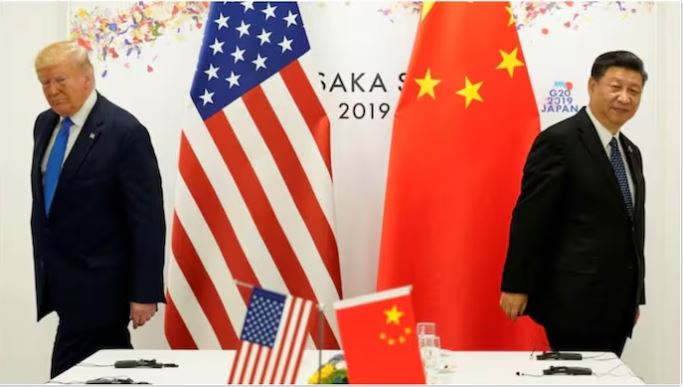New Delhi: In light of escalating trade tensions with the United States, China on Tuesday called on India to collaborate in opposing what it termed the “US misuse of tariffs,” following President Donald Trump’s announcement of a significant increase that raises total tariffs on Chinese imports to 104 percent.
Yu Jing, the spokesperson for the Chinese embassy in India, criticized the tariff measures implemented by the United States, asserting that China’s consistent economic growth, innovation, and strong manufacturing capabilities have generated beneficial effects for the global economy.
“China’s economy is supported by a framework that guarantees steady growth and produces positive externalities. Our manufacturing sector is founded on a comprehensive and continuously evolving industrial system, sustained investment in research and development, and a strong emphasis on innovation. China staunchly advocates for economic globalization and multilateralism, which have provided significant momentum to the global economy, contributing approximately 30 percent of annual global growth on average. We will persist in collaborating with the international community to protect the multilateral trade system, with the World Trade Organization (WTO) at its center,” Yu Jing stated in a post on X (formerly Twitter).
She further emphasized that India and China, as the two largest developing nations, should unite against US tariff policies, highlighting the complementary and mutually beneficial nature of their trade relationship.
“The economic and trade relationship between China and India is founded on complementarity and mutual advantage. In the face of the US’s tariff misuse, which undermines the development rights of countries, particularly those in the Global South, the two largest developing nations should join forces to navigate these challenges. Trade and tariff conflicts yield no victors. All nations must adhere to the principles of extensive dialogue, embrace genuine multilateralism, and collectively oppose all forms of unilateralism and protectionism,” she concluded.
What factors contributed to the escalation of the US-China trade war?
On Tuesday, a significant trade conflict between the United States and China seemed inevitable as President Donald Trump proceeded with a new series of tariffs aimed at various trading partners.
Since Trump’s return to the presidency, the total tariffs imposed on Chinese products have now reached 104 percent.
This substantial increase follows a retaliatory action from Beijing; however, Trump showed no inclination to relent, even as major US stock indices experienced another day of declines on Tuesday.
Trump asserts that his tariff strategy is designed to revitalize domestic manufacturing by incentivizing companies to relocate their operations back to the United States.
Nevertheless, numerous economists and industry analysts express skepticism, cautioning that such actions could lead to increased inflation and impose higher costs on consumers.
In spite of these apprehensions, Trump defended his approach on Tuesday, stating, “The United States was taking in almost $2 billion a day” from tariffs.
Initially, Trump proposed an additional 34 percent tariff on Chinese imports. However, after Beijing retaliated with a matching 34 percent duty on US goods, he intensified his stance, vowing to implement an additional 50 percent tariff.




